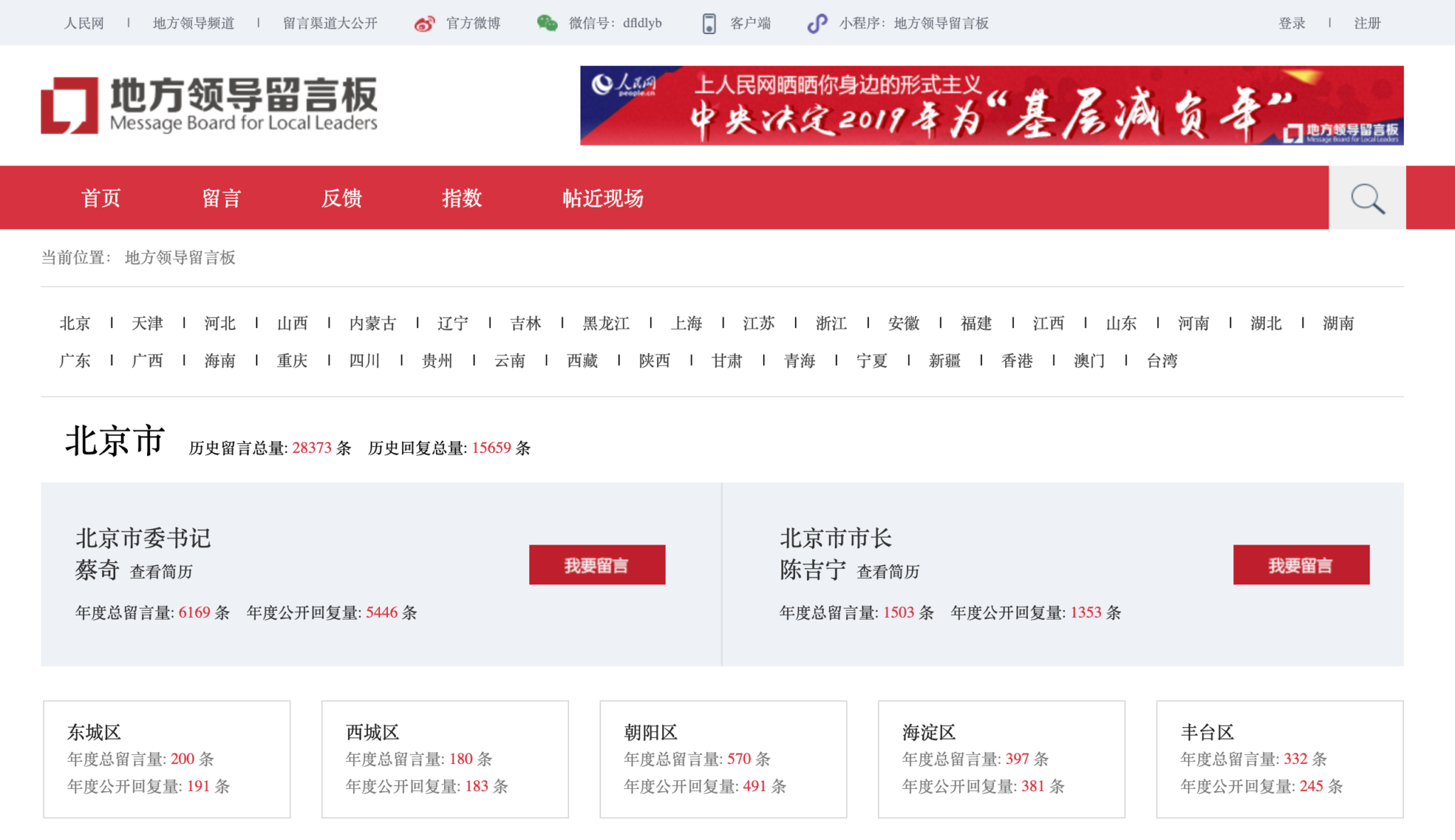"How Beijing Embraces Public Opinion to Govern and Control"
From Macro Polo:
Puzzled by “authoritarian resilience” in China after the “third wave” of democratization in the late 20th century, scholars began to delve deeper into how the Chinese Communist Party (CCP) fortified its power by tolerating limited public participation in politics. In this vein, the CCP came to embrace the internet as a tool to both improve governance and enhance control, particularly through the collection and analysis of online public opinion.
A fast-growing but under-studied case of this phenomenon is the Message Board for Local Leaders (MBLL, difang lingdao liuyanban). Run by People’s Daily Online (PDO) and also accessible via a dedicated app and through WeChat,
the MBLL lets netizens leave public messages for provincial, city, and
county governments, which can either ignore the message or respond
publicly (see Figure 1).
Figure 1. Screenshot of the Message Board for Local Leaders
PDO says the platform aligns with Xi Jinping’s call
in April 2016 that cadres “must learn to follow the mass line through
the internet…understand what the masses think and hope, collect good
ideas and good suggestions, and actively respond to netizens’ concerns…”
Xi issued this “order to get online” (shangwang ling) because, as he put it, “public opinion is online.”
Established in 2006, the MBLL had published a total of 1,737,962
messages by the end of April 2019, of which 66.4% had received public
replies from local governments. Interest in the site appears to have
surged recently, with the total number of official responses so far in
2019 already 50,000 more
than for all of 2018. From January to April this year, the 384,631
messages posted by netizens garnered a response rate of 78.2%, up from 57.6% in April 2016.
The MBLL is surprisingly transparent, allowing any viewer to see all
the messages and responses for each local government. In aggregate these
data point toward a positive correlation between response rate and
message volume, implying a virtuous cycle of interaction between the
government and the governed. The five provinces that account for over
half of all messages and replies—Henan, Sichuan, Anhui, Gansu, and
Shaanxi—also have five of the seven best response rates nationwide (see
Figure 2)....
...
MORE
